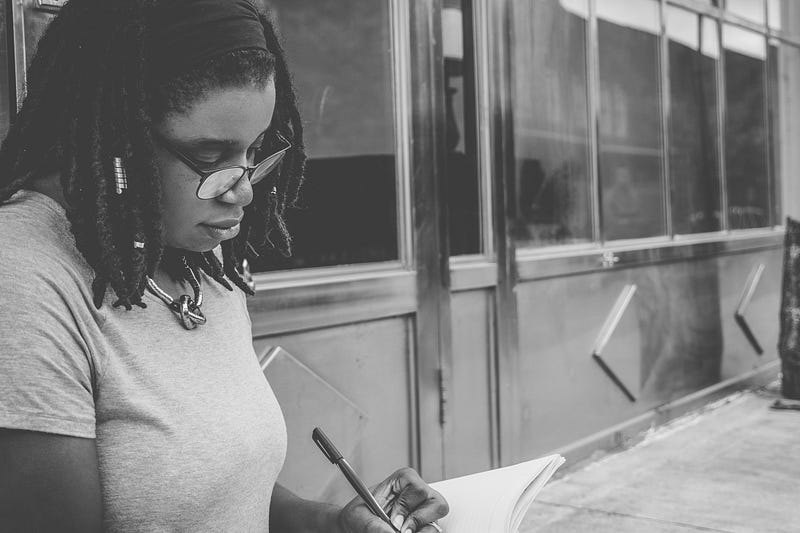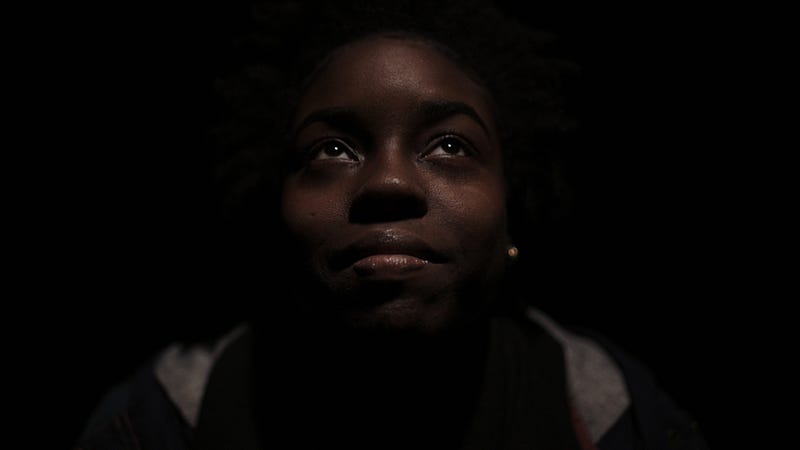The information, opportunities and possibilities children encounter from birth affect their options in life, long before they think about career choice, but you can help.
When I left fundraising — my first real job — to go to graduate school, I specialized in career counseling. It’s how I ended up working almost primarily with kids. Who eventually broke my heart and made me question everything I’d ever known. More on that some other time.
Career counseling gets a bad rap.
It’s not a popular course of study in clinical mental health programs. Even in community counseling programs, the career track can feel like a lonely abyss.
Many of my classmates at the U of S and UMSL thought career counseling was boring or involved too many assessments, formalities and of course, suits.

The actual practice of career counseling is a lot different than it might seem or what you might expect.
Sure, a career counselor can help you figure out which profession is most aligned with your values, the life you hope to lead. They can help you market your transferable skills during a career transition. They can shed light on completely new fields or applications of your skills — help you find the perfect fit.
Career counselors are also those people you meet with just before graduation to figure out what the hell you’re going to do with that Anthropology degree. I was one of those career counselors at the University of Virginia. And, it was rather boring.
But, before that — and after that — I worked primarily with school-age kids. Why? Because career counseling doesn’t start when you are looking for a job. It starts the day you are born and continues throughout the life cycle.

I’ve always rooted for the underdog. How could I not?
That was me, or so I thought. I was a first generation college student. I flew on an airplane years before my mother would. I lived in foreign countries. I spoke foreign languages.
And yet, my parents raised me, along with my four brothers on less than 17K a year. On a dairy farm in the middle of nowhere Pennsylvania. During a recession that killed the family farm and changed an entire industry.
My “pain story” was this: I overcame obstacles. I made it despite my background, the economy and my gender. But when I moved to St. Louis to continue my graduate work, I learned how privileged I had been.
Two weeks in, I walked into my first clinical placement and discovered — within minutes —that I was not the underdog I thought I was. That realization sent me on a journey. I’m still on that journey.

Specializing in career counseling seemed to be the most effective way for me to create change for myself AND those less fortunate.
No one can change that you were born with a rusty ol’ spoon in your mouth. I can’t do anything about the fact that my dad didn’t have frat brothers working in the industry or that you don’t have a second cousin in banking who can get you a killer internship.
Furthermore, no one can change the impact your childhood had on what you value and how big you dare to dream.
When your parent(s) have to work multiple jobs just to keep food on the table, they often don’t have time to help you figure out what is motivating for you, what you’re passionate about or your education at all.
Unfortunately, for many children, the only thing that matters about school is that they don’t call home — for anything. Good, bad, illness or success.

Career counseling at it’s core is education.
How many people wanted to be a teacher or a nurse when they grew up? Why? Because they wore pretty clothes and were the only ones you saw who seemed to be happy? That was all it took for me.
We end up choosing careers that are within three separations from those we encounter in our early lives. That means if you grow up in a farming community like I did, you might become a teacher. Especially if no one else in your family went to college. And, over half of your classmates are going straight into the workforce.
The top three female achievers in my graduating class all had babies before they earned their diplomas. I still feel lucky that it wasn’t me.
It’s a big step for many low-income youth to apply to a four-year college. Most folks don’t get much farther. Only 27% of first generation students graduate.
Sadly, the outcomes are definitively worse if you’re black. Because it’s practically a miracle for you to make it to middle age. And, you’re more likely to end up in an institution than in graduate school.
The gap between black and white students widens each year of formal education — to the point that black student achievements, grand as they may be, don’t even fall in the same realm.

Early career education helps provide low-income, minority and other disadvantaged students with more possibilities, more options for the future and more information.
When done well, school-wide career education can ensure that everyone has at least the basic information they need to make informed decisions about their future.
Yet access to career education is neither universal, nor equitable. The majority of low income students attend public schools with high poverty rates — where the average spending per student is significantly lower than public schools in more affluent areas. And, in many schools, there are bigger problems than careers or income inequality. Especially these days.
This means it’s up to communities — to each and every one of us — to lift children up, to level the playing field.
How? By mentoring. By engaging — with children, especially adolescents, about careers, jobs, education — and by giving them permission to dream.
I know, I know — kids are fearless these days; it can be a bit terrifying to face them. Just ask Donald Trump.
But, our youth need you. They need to hear your story. Youth from all backgrounds will benefit from knowing where you came from and where you’re going.
We learn best through stories. It is the most fundamental characteristic of humanity, second only to connection — the tribe. Storytelling literally hijacks the oxytocin production in your brain and oxytocin makes you feel great.
Stories are how humans have survived. Stories are how we learn to empathize. Stories passed down from generation to generation not only define our social norms but also give rise to possibility. To imagination. And big, big dreams.
Our youth need to hear your story. They need to hear about the sacrifices you made or how you found success only after you had failed. They need to know that what was once an unrealistic dream did come true — just maybe not the way you expected it to.
The difference in the kids that made it and the kids that didn’t — in my experience as a college advisor, youth counselor and a mental health provider — was the presence of a mentor.
It didn’t matter if they were a paid mentor, hired by social services or by a parent frustrated with traditional avenues for help. It didn’t even really matter if they were trained to be a mentor or acted officially as a mentor.
Any adult that takes the time to talk to, understand and support a child is a mentor. Positive relationships with adults have lasting effects on the outcomes of disadvantaged students.

About a year ago, I purchased www.mywarriorwoman.com. My trademark application for the “Warrior Woman Project” is in processing. I also established a corporation under the name Warrior Woman Productions and have been working to make it a non-profit.
The goal of all this is to provide a platform for women — of all backgrounds, experiences and careers — to share their stories and connect with disadvantaged youth. Sorry men— women have far fewer opportunities to access positive adult mentors.
source: medium.com












